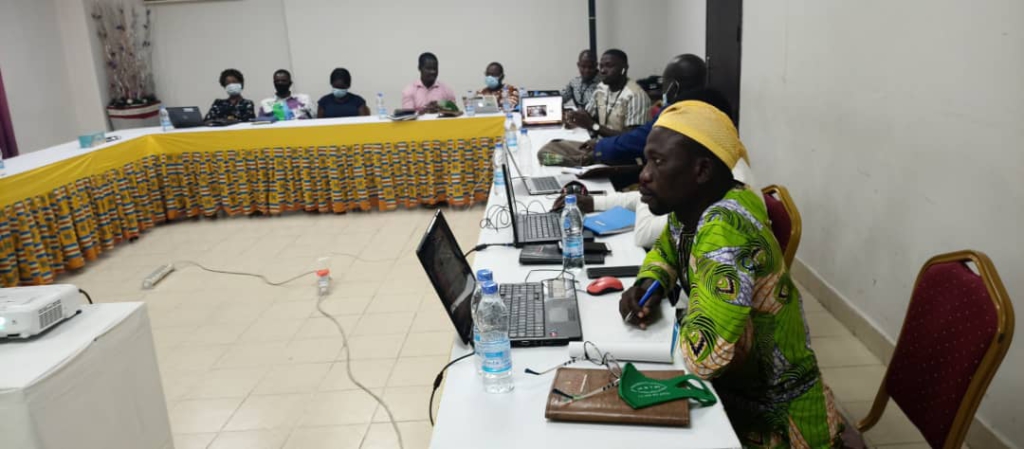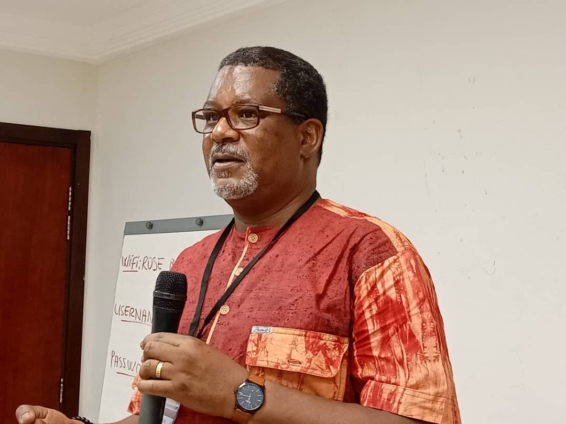The billion-dollar fish industry on the West African Coastline is being threatened by increased illegalities in the sector. Vessel poaching, unreported fishing, unregulated fishing, illegal fishing and other related crimes in Ghana, Nigeria, Cote D’Ivoire, Togo, Liberia and Benin, are raking at least 10 billion dollars from the industry coffers annually. Head of the Multinational Maritime Coordination Centre (MMCC) Zone E, Diomande Baba Maxime indicates a dire situation threatening the region’s food security and jobs for well over 3 million people.
Who are the Fisheries Committee of the West Africa Central Gulf of Guinea (FCWC)?
Ghana, Nigeria, Togo, Benin, Cote D’Ivoire and Liberia formed the Fisheries Committee of the West Africa Central Gulf of Guinea (FCWC) combining their resources to protect their fish assets. Despite a grand maritime space of a combined 2,633 km of coastline and an Exclusive Economic Zone (EEZ) of 923,916 km2, the majority of these countries are unable to produce enough to feed their population.
They are largely (70%) dependent on imports except for Ghana who produces more than 90 per cent of its fish locally. But the exploitation by foreign industrial fishing and IUU fishing is tantamount to a receding maritime line and depletion of resources. These countries stand to gain an estimated 32 billion dollars if transformational changes are made in the industry.

Measures by the West African Task Force (WATF)
The problems in the FCWC fishing industry led to the formation of the West African Task Force (WATF) in 2015 to help them fight crimes in the sector by combining forces. So far with Monitoring Control and Surveillance (MCS) agreements, some sanity is gradually being instilled into the fishing industry space. Members signed on to the 2014 convention on pooling and sharing of information and data on fisheries and the 2009 FCWC Regional Plan of Action on Illegal, Unreported and Unregulated (IUU) fishing which was revised in 2018.
These instruments have facilitated the sharing of information between members and the strengthening of the interagency corporation. Nevertheless, the task to protect the fishing industry in the sub region is herculean and needs the help of all sectors including the media.
Strategically, investigating crimes in this sector will be a major boost to unravelling corruption in the sector.
In that light, ten journalists from West African countries Ghana, Togo, Guinea Conakry, Guinea Bissau, Liberia, Ivory Coast and Senegal under the sponsorship of the Norbert Zongo Cell for Investigative Journalism in West Africa (CENOZO), received training in a 2-day workshop to boost their knowledge in the sector.
This will help them work together with inter-regional agencies to uncover crimes in the fishing industry. Board member of CENOZO, Diallo Abdoulaye was optimistic journalists will help in the fight. The FCWC zone may have a receding maritime line coupled with the battling of IUU fishing and related crimes but with a strengthened regional effort and incorruptible media, IUU fishing will become history and so will the West Africa fishing industry flourish.
Latest Stories
-
IES calls for immediate removal of Matthew Opoku Prempeh over deteriorating energy crisis
20 mins -
GFA reschedule selected MD 28 fixtures to ensure maximum support for Dreams FC
21 mins -
A new financing model for SHS will leverage private sector to finance infrastructure – Bawumia to CHASS
24 mins -
Earth Day: CCCFS promotes adoption of ceramics to fight plastic pollution
49 mins -
Ten dead as navy helicopters collide mid-air in Malaysia
1 hour -
Kwadaso Onion Market: Traders relocated over security concerns
2 hours -
Organise your dumsor demo, we’ll choose who to partner for ours – Franklin Cudjoe tells Yvonne Nelson
2 hours -
Government to consolidate cash waterfall revenue collection accounts
2 hours -
‘Otumfuor is one of Kotoko’s biggest issues’ – Nana Agyemang
2 hours -
Bawumia travels to Italy and Vatican State
2 hours -
Bellingham wins Laureus Breakthrough award
3 hours -
2024 polls: Haruna Iddrisu predicts NDC victory in all 11 Upper West parliamentary seats
3 hours -
GPL: Berekum Chelsea beat Medeama to go fifth
3 hours -
Debt Restructuring: Government to reach agreement with IPPs in May
3 hours -
It’s time for Ghana to move from NPP and NDC – Abu Sakara insists
3 hours

